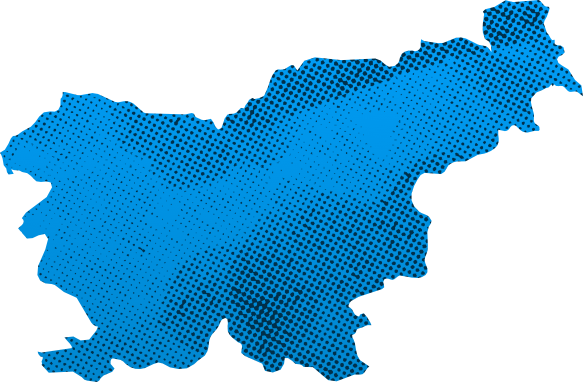
Volunteer statistics (ILO)*
Source: ILOSTATS. The data is collected by ILO from national statistical offices. As national statistics on volunteer work are produced using a variety of approaches and tools, direct and cross-country comparisons are not recommended. For more information, visit https://ilostat.ilo.org/topics/volunteer-work/
Total volunteering by gender
Direct volunteering by gender
Organization-based volunteering by gender
Measurement work
Data source
- 2007
- 2008
- 2009
- 2010
- 2011
- 2012
- 2013
- 2014
-
2015
- Social Survey
- 2016
- 2017
- 2018
- 2019
- 2020
- 2021
- 2022
- 2023
- 2024
- 2025
- 2026
Laws, Policies, Schemes on Volunteering
Does the country have a piece of legislation on volunteering?
No data
Does the country have a national policy, scheme, plan or strategy specific to volunteering?
No data
Does the country have a sectoral and cross-sectoral policy, scheme, plan or strategy that mentions volunteering?
No data
VNR Reporting
Voluntary National Review on the Implementation of the 2030 Agenda
View sourceReporting positive contribution of volunteering to the SDGs
Paragraph 1, page 17
Slovenia strives to address key challenges in securing quality life for all, and our activities will be focused on: [...] Enhancing cooperation, solidarity, and volunteerism, including through promoting social innovations
Paragraph 2, page 18
By co-financing social security programmes over a long period, the Republic of Slovenia promotes and provides employment to more than 500 experts (social workers, psychologists, educators, etc.) in a range of 400 positions of full-time employment. These programmes include approximately 8,400 volunteers, whose work and (in particular) experience is a significant contribution to the greater quality of the implementation of the programmes. As a rule, the funds are used to cover the labour costs of professional staff and the material costs necessary for the implementation of the programmes.
Paragraph 3, page 62
As the key representative of Slovenian youth, the priority areas of MSS are youth employability, housing issues, education, health, participation, mobility, information-sharing, volunteering, and youth organising. The UN Youth Delegate of Slovenia in 2017 is focused on youth participation, including economic participation (decent work, accessible housing, quality education, non-formal education, employability, and entrepreneurship), political participation (formal and informal participation, active citizenship, and advocacy), and community participation (youth policies on local level, youth organising, volunteering, youth work, and intergenerational and intercultural dialogue).
Paragraph 4, page 65
Skills and competencies for employability The current focus of Slovenia is to boost relevant skills for employment, decent jobs, and entrepreneurship. The youth sector in Slovenia plays a vital role in this process. As young people face the challenge of a lack of practical individual skills and competencies that employers seek (such as communication, teamwork, management, and planning), the youth sector serves as an indispensable provider of non-formal education through civic projects, learning programmes, and volunteering opportunities. Slovenia is the only OECD member in which the proportion of young volunteers is higher than the proportion in other age groups: as many as 40% of youth are volunteers.
No mentionSecond Voluntary National Review Slovenia
View sourceReporting positive contribution of volunteering to the SDGs
Paragraph 1, page 30
The Sopotniki Institute is a non-governmental voluntary organisation. By offering free transport, it provides access to public and private services for the elderly: doctors, stores, pharmacies, garden centres and hospitals. It also takes customers on private visits and to cultural events in the local area. By providing mobility opportunities, it aims to prevent or break the isolation and loneliness of elderly people from mainly smaller, more remote villages, who almost never leave their homes due to the remote location, lack of vehicles or poor transport connections. Safe mobility for the elderly should be ensured as one of their basic rights to access everything they require. The heart of the service is the relationship between the volunteers (drivers) and the elderly.
The entire operating model is built so as to ensure everything needed for a safe and enjoyable trip. The central value of the operation of the Institute is solidarity among people and generations. It promotes the social inclusion of the elderly and social contacts; the elderly should enjoy an active social life, remain independent and live in a home environment for as long as possible, to which the possibility of mobility contributes. The programme also facilitates access to healthcare services for older citizens.
Paragraph 2, page 66
The Reuse Centre (RC), established in 2011, operates as a social enterprise in the reuse sector at six locations throughout Slovenia. [...] The RC collaborates with volunteers, innovators and young industrial designers. It represents an example of good practice in achieving common values, such as environmental protection, fighting poverty, the social integration of hard-to-place individuals in the labour market, the preservation of craft and trade professions and the development of green jobs in interdisciplinary fields.
Paragraph 3, page 84
In 2017, the Government of the Republic of Slovenia implemented The programme of the Government of the Republic of Slovenia to enhance integrity and transparency 2017, which specifies the measures to enhance the integrity of all public institutions and their employees. In 2018, Slovenia adopted the Non-Governmental Organisations Act and the Ordinance on the development strategy of non-governmental organisations and volunteering until 2023, which will contribute to the transparent operation and optimisation of the funding of non-governmental organisations.
Paragraph 4, page 88
Slovenia is also engaged in strengthening support organisations for establishing future connections between organisations that are active in the field of international humanitarian aid and international volunteering. In 2018, Slovenia, inter alia, supported a project to raise the awareness of the Slovenian (and European) public as to the relationship between universal sustainable development and migration, its role in the EU and in developing countries, and the EU’s contribution to development cooperation.
No mention